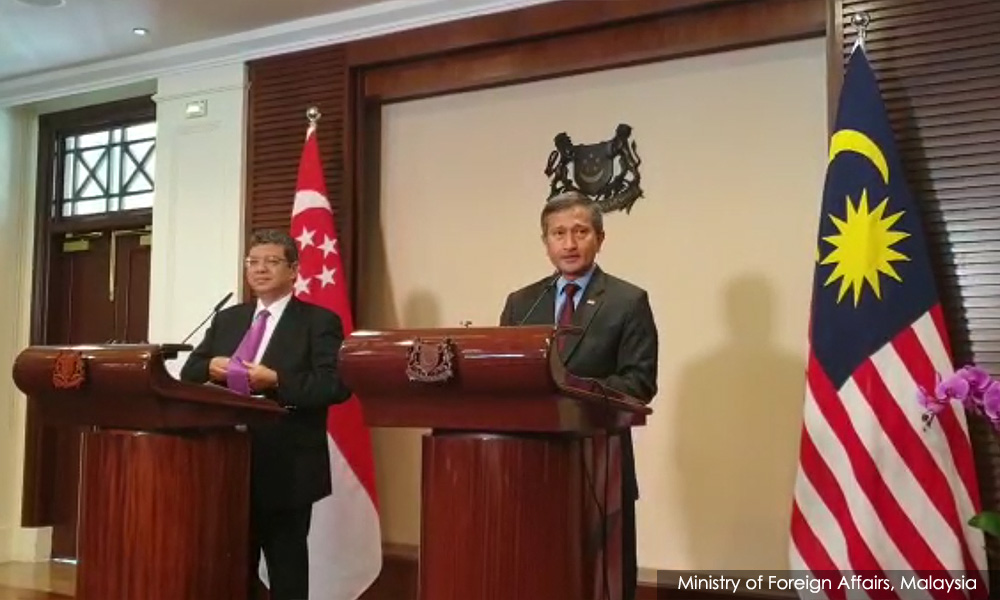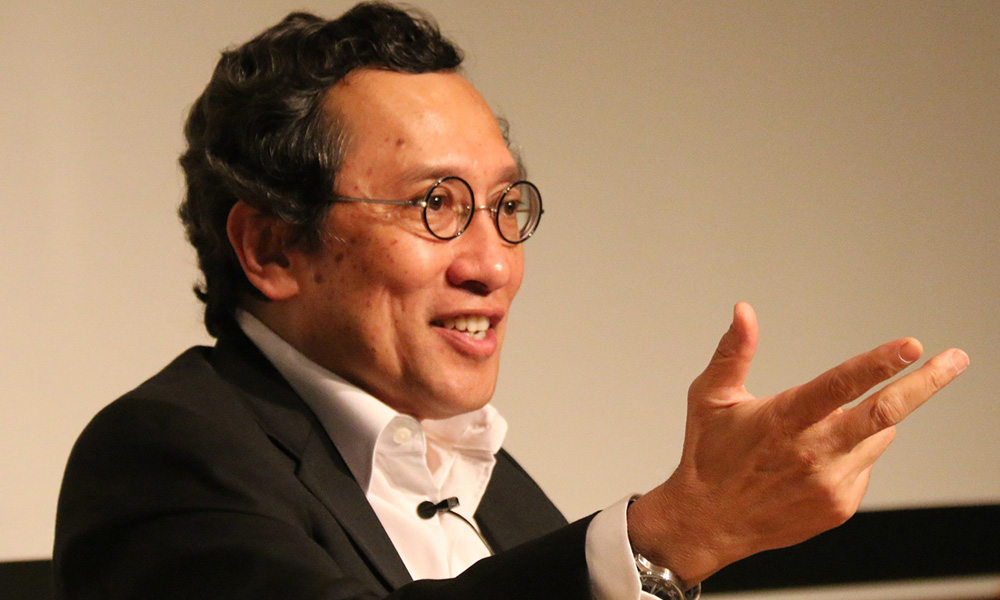
Published by Malaysiakini, images from Malaysiakini.
Singapore is a power that is capable of punching well above its weight. Some of their best diplomats have commanded the attention of the policy-making communities in the West, and East.
Among them include Kishore Mahbubani, Chan Heng Chee, Tommy Koh, at one stage in 1990s, Professor Walter Woon too. Bilahari Kausikan, a former envoy of Singapore Ministry of Foreign Affairs, was a late bloomer.
Not until Kishore Mahbubani made the mistake of affirming that Singapore should be keenly aware of its (small) “size”, did the stars of Bilahari Kausikan began to shine from 2018 onwards. How?
Bilahari Kausikan, leaning on the leverage and help of the PAP party, invariably, Singapore state, started attacking Kishore Mahbubani. Leading or following a posse of vicious attackers, the likes of Bilahari Kausikan reduced Kishore Mahbubani to a mere pulp.
This is despite the fact that Kishore Mahbubani was a giant of an intellect in his own right, coming quite close at one stage to be the secretary-general of the United Nations, if only he had not been upstaged by South Korea’s Ban Ki Moon.
In the writings and YouTube features of Bilahari Kausikan, one can see him struggling very hard, either to prove the thesis of Asian values, or stringing up complicated sentences to appear intelligent and coherent.
Due largely to such organized pretence, Bilahari Kausikan is not taken seriously, not unless he lunges wildly at other Singaporean thinkers, with the help of the government.

In suggesting that Malaysia will be a source of persistent discord to and in Singapore, Bilahari Kausikan was not so much analysing as he was overanalysing it. Why?
First and foremost, he averred that the source of the discord from Malaysia is “systemic”. Second, the trigger and catalyst of the brewing troubles from Malaysia – be they in the form of haze across Johor or hyper ethno-nationalistic hazards from the heartland of Malay – will be endemic.
As a student of philosophy, assuming he is a student in perpetual wisdom – even that is a big if, since Bilahari Kausikan has never been truly respected in Singapore other than the cushy positions he enjoys as the chairman of the Middle East Institute in the National University of Singapore – Bilahari Kausikan should know he is engaging in a tautological statement.
In other words, he is stating the obvious. Of course Malaysia will have various headwinds and difficulties as a nation, indeed, a federation of 13 states. It goes with the territory of trying to defend and maintain one’s sovereignty and structural integrity as a nation state or even state nation.
But it is erroneous to the extreme to suggest that Malaysia will provoke controversies and disputes with Singapore in order to overcome its own internal tensions.
If such was the extent to which Malaysian leaders were to govern, Pakatan Harapan could have said that Singapore was not being more candid and helpful in investigating 1MDB in Harapan’s drive towards defeating the kleptocracy of Datuk Seri Najib Razak between 2015-2018.
Jho Low and gang, after all, used many financial mechanisms in Singapore to ferret the money from the banks. Singapore did what it did, to expose Jho Low, and Malaysia was thankful for it.
In other words, as and when Singapore was conducting itself in a becoming manner, Malaysia praised it; even if by attacking it, Pakatan Harapan would have hastened the fall of Najib by playing on the nationalistic card against Singapore — that Singapore was protecting Najib and not doing enough.
The evidence and most recent history show that Malaysia has never had to set Singapore up as a bogeyman, not unless there was a genuine issue or dispute, of which the price of water, border demarcation, and the likes were there to be seen, and indeed, discussed.
Bilahari Kausikan looks large precisely due to his vicious and adversarial nature, supported by a pliant media in Singapore, that wants to sensationalize every perturbation with Putrajaya.
Without the perch at the National University Singapore, and the clutches provided by PAP and its supplicant media, Bilahari Kausikan’s view would not carry any weight; as indeed he doesn’t in any seminars and conferences in Asean writ large, especially the East Asian Summit.
By trying to needle and prick Malaysian establishment, Bilahari Kausikan has done what he has done best: he is challenging Malaysia in a race, not to the top, but to the bottom. This rebuttal is a corrective to the latter if others in Malaysia had not fallen into the trap of Bilahari Kausikan.
Then again, it may be too late precisely because Bilahari Kausikan has been backed by the state that is Singapore, whose party has never had any transition in power, if ever.
Dr. Rais Hussin is President & CEO of EMIR Research, an independent think tank focused on strategic policy recommendations based on rigorous research.

